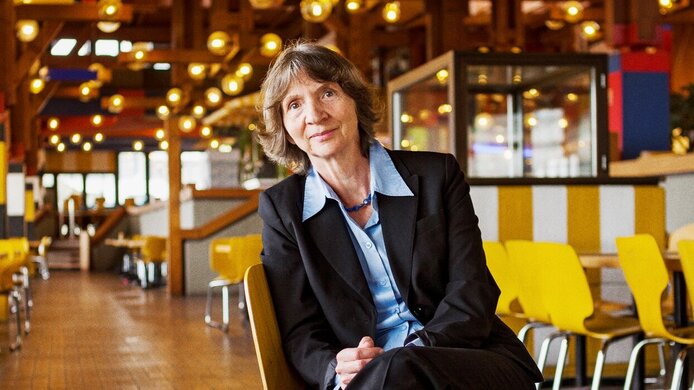Memory as an agent of social cohesion

You have focused on memory culture in your work for several decades, advocating an open-minded confrontation with the past. Why is memory so important for human communities?
Aleida Assmann: People need memory, and they need it on several distinct levels. As individuals, we need memory to stay oriented in time, memorize information and record experiences. But we also need social memory to connect with our family and other groups or communities. You belong to a community if you share its collective memories. Thus, memory works as an important agent of social cohesion. And finally, we need cultural memory: selectively recorded clusters of knowledge and cultural traditions or customs that open up long-term spaces of thought and help define our position within a wider community.
Have global developments and the Internet changed memory cultures, or, in other words: do we need new forms of memory?
Assmann: The Internet has expanded and enhanced the scope of publishing activities that was historically created when printing technology emerged. Around the year 2000, the speed and volume of communication exploded in hitherto unimaginably dimensions. Access to mass media was further democratized, visual and audio media were added, and readers turned into ‘users’ who not only read but are able to respond in real time. At the same time, however, the quality of information has become precarious. Only search engines are capable of navigating the superabundance of data. Advertising that pops up at every mouse click demonstrates that money rules the web, and the credibility of information is no longer secure because it is in most cases impossible to trace back news to their original source.
In your most recent book, you are calling for a new social contract, arguing that human rights cannot be laid down without also defining duties. In this context, you mention virtues that were upheld in teachings as early as the ancient Egyptian Sebayt literature, such as modesty, respect and the protection of weaker beings. Have we lost the basic rules for living together as humans?
Assmann: These rules were defined exactly because they cannot be taken for granted, but have always been threatened by the abuse of power, greed and inhumane institutions. Today, what separates us from these humane virtues are such things as chauvinism, racism, fundamentalism and economic exploitation.
Aleida Assmann is a scholar whose work focuses on literary and cultural studies. She studied English and Egyptology and has most recently been engaged in teaching and research at the University of Constance. Aleida Assmann has held visiting professorships at several leading international universities. Together with her husband, Egyptologist Jan Assmann, she has been engaged since the 1990s in studying cultures of memory and remembrance, focusing in particular on memory and remembrance in Germany after the Holocaust. Aleida Assmann has published several books, most recently Menschenrechte und Menschenpflichten (Picus 2017), Formen des Vergessens (Wallstein 2016) and Das neue Unbehagen an der Erinnerungskultur (C.H. Beck 2013). She and her husband will receive the Friedenspreis des Deutschen Buchhandels (Peace Prize of the German Book Trade) this autumn.
50 years of FWF - 50 years of top-noch research
Aleida Assmann will give a keynote speech entitled “How much past does the future need?”at the opening of the BE OPEN Science & Society Festival in Vienna on Saturday, 8 Nov. 2018. The five-day festival will be celebrated to mark the 50th anniversary of the Austrian Science Fund FWF.





